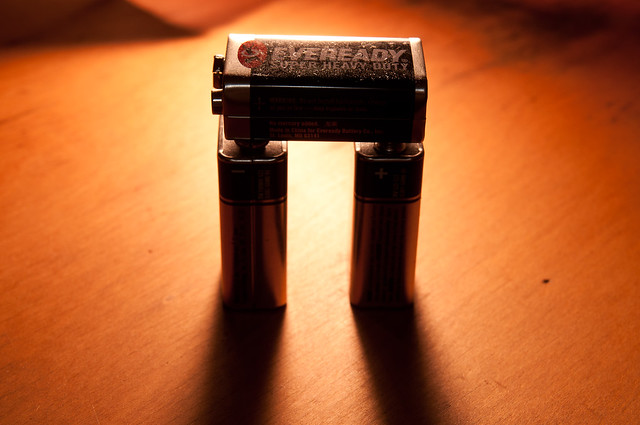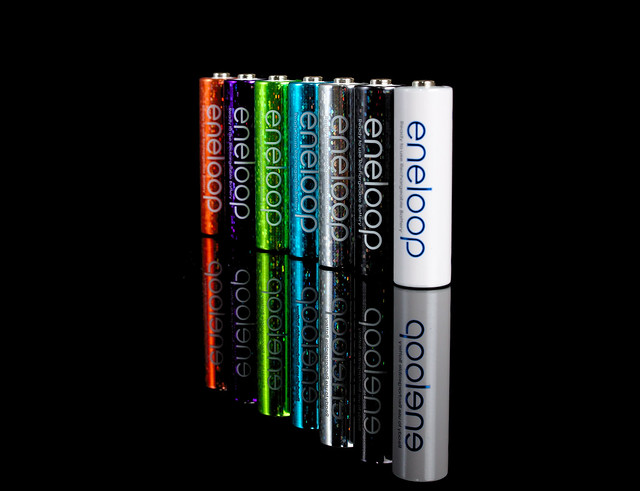Best Way to Dispose of Lithium Batteries –Environmentally Friendly
APR 09, 2020 Pageview:1479
We all rely on Lithium batteries to power everything from our remote controls to our toothbrush. They’re in our laptops, smartphones, and wrist watches. They are also used in our power drills and weed eaters. They are in many everyday objects because they provide more energy compared to other types of batteries, they are rechargeable and they last longer. We enjoy the benefits of lithium-ion batteries, but are unaware what to do with these batteries when they die and of the hidden dangers of throwing them in trash or recycling bin.
How Do You Dispose Of Your Lithium Batteries?
The tremendous performance characteristics of Lithium batteries enhance the performance of our electronic devices, as described above. However, the handling of Li-ion batteries when they’re dead or during the end-of-life phase of electronic devices requires additional consideration. If we handle these batteries incorrectly, there is a greater risk of fire, pollution and other negative effects.
How do you recognize if a battery is a lithium-ion battery? Let me tell you every Lithium battery has Li-ion as an identification mark on it. This can be placed on the battery as a sticker or inscribed in the material.
There are two types of lithium batteries present in your household single-use lithium batteries and rechargeable lithium batteries. Single-use lithium batteries are of different sizes. They are in your TV remotes, children’s toys, flashlights, wall watches, and other small electronics. Any battery that is not rechargeable, it falls into this category. Rechargeable batteries are the ones that are present in your mobile phones, power tools, digital cameras, laptops and other more powerful electronics in your home.
When any of your lithium battery dies or the life of the device containing lithium battery ends what people usually do is they throw them into the trash or recycle bin which is not a good way at all. Because batteries containing lithium are highly reactive and contain hazardous materials, they should not be thrown into the trash or recycling bin. Lithium batteries are recyclable batteries. So to dispose of lithium batteries, take them take them to a recycling center, which you can easily find online.
Is It Good To Throw Lithium Batteries Anywhere For The Environment?
Li-ion batteries are considered hazardous waste. These batteries are not like the traditional alkaline batteries, which should also not be thrown in the trash by the way, because lithium batteries can cause great destruction. No, we’re not exaggerating. They can cause literal destruction.
If you throw an item containing Li-ion battery anywhere, you are increasing the risk of fire explosion in your home. Li-ion batteries contain a variety of chemicals. Incorrect disposal of these batteries has significant consequences on the environment. Such consequences include environmental pollution and loss of material/resources. Whether they are single-use battery cells or they are rechargeable batteries, if they are made up of lithium it is not good for the environment to throw them anywhere.
Lithium batteries are highly reactive and very difficult to control. Influences such as short circuit, too high charging voltage, high temperatures, or even too much of a heavy strain can cause exothermic reaction, which is a chemical reaction that releases energy through heat or light, in the battery. In other words, Li-batteries can rapidly catch fire. This is the reason why airlines cannot allow lithium-ion batteries and spare lithium metal batteries in checked baggage.
Lithium-ion batteries carry a thin sheet of polypropylene that separates electrodes and protect against short-circuiting. However, if a device is punctured or crushed, a thermal reaction can result, as batteries short-circuit when the separator between their negative and positive components are breached. The larger the size of the battery, the stronger the thermal reaction is. In this way, a thrown battery could catch other flammable material adjacent to it. Especially, when a big number of batteries are collected, where just one lithium-ion battery might ignite or burst into flames.
Previous year there was a huge fire at a recycling facility up in Blaine, Whatcom County Washington, United States, because a mobile phone was thrown into a household trash and made its way into the moving facility undetected. The battery was punctured and caused a disastrous fire to the recycling plant.
Li-ion batteries burn at a very high speed at high temperature and it is tough to stop the fire once it starts. To avoid causing all-out chaos, please don’t throw your batteries in your recycling bin or trash.
What is the Best Disposal of Lithium Batteries?
The best method to properly dispose of your Li-ion batteries is to send or take them to your local recycling center or retailer. The professionals who work in these places are trained to package and handle the batteries to get them to the correct place for proper recycling.
There are various types of Li-ion batteries (low-yield, high-yield, the little round silver button ones, etc.) that are often thrown and missed in the trash. Don’t throw these batteries or electronic devices into your trash can or recycling bin. As mentioned above, to dispose of lithium batteries, you need to take them to a recycling center. Keep in mind you need to keep your batteries out of your regular bin or trash. Put them in a separate plastic bag and take them to a recycling center.
Batteries that are used commercially should be discharged completely prior to their disposal. A lithium battery generally considered discharged if its voltage is under 2 volts or equal to 2 volts under a current of battery capacity divided by 100 (C/100).
Recycling of lithium batteries is a better idea instead of taking them as waste and increasing complexities of waste management, as this could open up recycle opportunities for energy-sector firms. Few firms have shown a positive approach towards recycling of Li-ion batteries and they are planning on taking up this work to the next level by enhancing their overall functional capacity. So, in this way recycling of Li-ion batteries is good for the environment and its people.
- Prev Article: Best Lipo Battery Brand –Comparison and Buying
- Next Article: DIY 18650 Battery Holder Case Box-Definition and Working
Leave Message
Hottest Categories
-
Hottest Industry News
-
Latest Industry News












